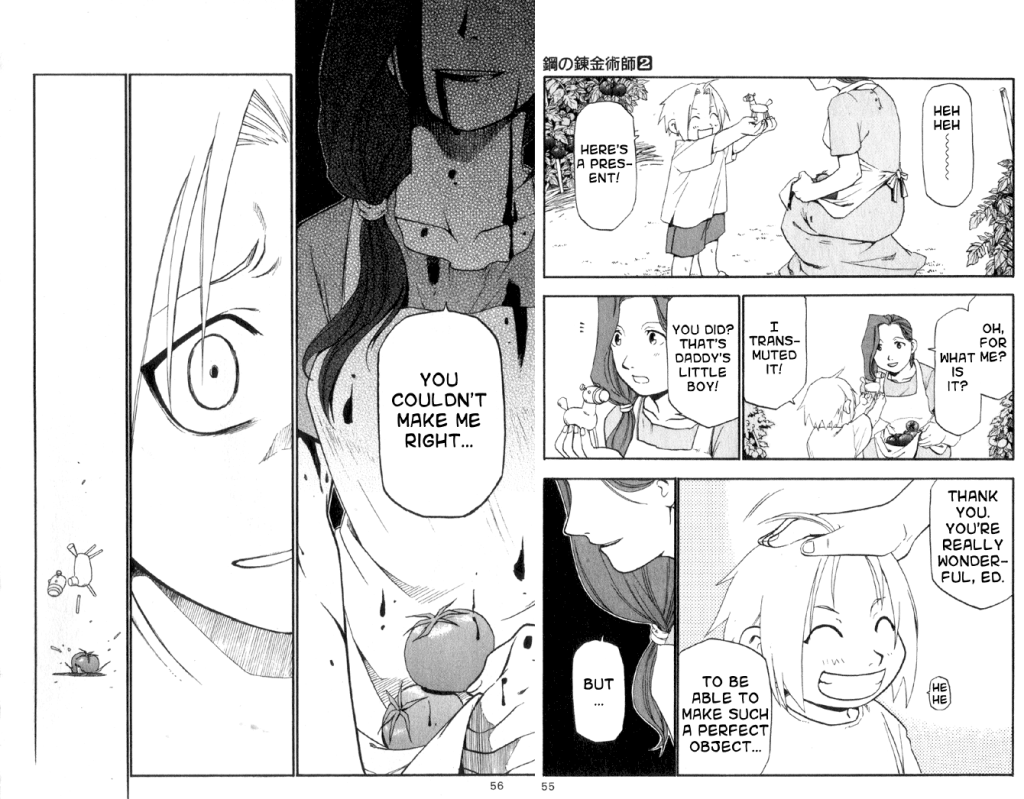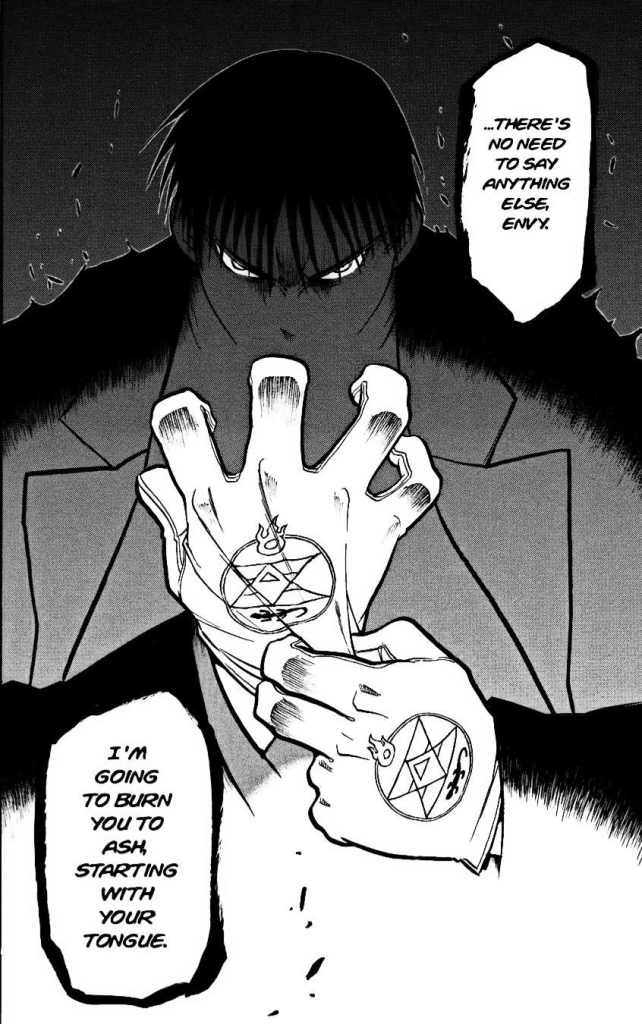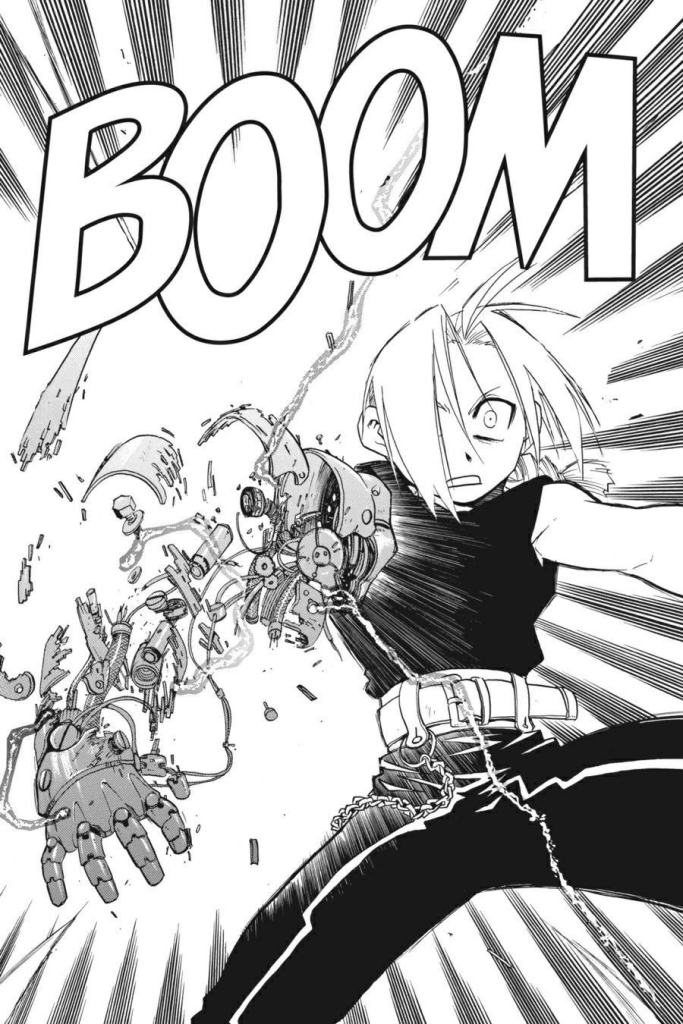Hiromu Arakawa’s Fullmetal Alchemist remains, to this day, one of my favourite mangas – probably my #1 if I was forced to pick. Spanning 27 volumes, it tells the story of brothers Edward and Alphonse Elric, whose tragic attempt to resurrect their mother using forbidden alchemy sets them on a journey to reclaim their bodies and uncover the secrets of their world.
The manga’s plot is a tightly woven tapestry of science, philosophy, and political intrigue. Arakawa explores the concept of equivalent exchange—the idea that nothing can be gained without sacrifice—and uses it to explore themes of grief, redemption, and the cost of ambition. Unlike many other manga series, Fullmetal Alchemist has a clear beginning, middle, and end, with no filler and a deeply satisfying conclusion. As an avid reader I’ve always felt frustrated when graphic novels “meander”. Be it the latest DC/Marvel superhero comic or a Shōnen manga – filler content, drawn out fight scenes and confusing plotlines change the way a story is consumed, interpreted and understood. I accept that, as art, this can be the desire of the author but, personally, I find it detracts from a well structured story. Luckily Fullmetal Alchemist has none of that and delivers suspense and mystery in a most satisfactory way.
The world-building is exceptional. Amestris, the militarized nation where the story unfolds, is steeped in steampunk aesthetics, alchemy-based science, and real-world parallels to war and genocide. What I found particularly impressive was how the series didn’t shy away from heavy topics like state violence, human experimentation, and moral compromise. Through a richly developed ensemble of supporting characters, Hiromu Arakawa explores these issues in depth—without resorting to contrived situations for the Elric brothers or bogging down the story with excessive exposition.

Edward and Alphonse’s bond is the emotional core of the series. Their relationship is the emotional anchor of the series, driving every decision, sacrifice, and moment of growth. From the trauma of their failed transmutation to the long, painful journey toward redemption, their evolution from guilt-ridden, impulsive teens to thoughtful, morally grounded young men is handled with remarkable care and pacing. Each trial they face—whether physical, philosophical, or emotional—strengthens their resolve and deepens their understanding of themselves and the world around them.
Surrounding the brothers is a cast of supporting characters who elevate the narrative far beyond a simple hero’s journey. Roy Mustang and Riza Hawkeye offer a compelling look at loyalty, leadership, and the cost of ambition within a corrupt system. Scar, initially a vengeful antagonist, undergoes a powerful transformation that explores themes of justice, forgiveness, and cultural trauma. Ling Yao brings levity and cunning, but also a poignant arc about identity and sacrifice. Together, this ensemble creates a rich emotional tapestry where every character, no matter how minor, contributes meaningfully to the story’s exploration of humanity, morality, and the pursuit of truth.


As with the “heroes” the villains in Fullmetal Alchemist are far more than mere obstacles for the protagonists. They’re ideologically driven forces that challenge the very foundations of morality, identity, and ambition. Father, the central antagonist, is a chilling embodiment of hubris and the desire for godlike control, manipulating entire nations in pursuit of a twisted ideal of perfection. His calm demeanor masks a terrifying detachment from humanity, making his actions all the more unsettling. The Homunculi, created by Father, each personify one of the seven deadly sins, serving as distorted reflections of human nature. Their individual arcs – whether it’s Envy’s deep-seated inferiority, or Greed’s surprising evolution – offer nuanced explorations of emotional conflict and existential yearning. These antagonists aren’t evil for evil’s sake; they’re shaped by purpose, pain, and philosophical conviction, which makes their confrontations with the Elric brothers not just physical battles, but moral reckonings.
Arakawa’s art evolves dramatically over the series. Early volumes feature clean, expressive linework and comedic exaggeration, while later chapters showcase dynamic action, emotional subtlety, and cinematic paneling. Her ability to balance humor with horror is unmatched, blending them perfectly to never sully the gravity of the story.
Whether you’re new to manga or a seasoned reader, Fullmetal Alchemist offers a complete, emotionally rich experience. It’s a rare series that combines intellectual rigor, emotional weight, and narrative precision without ever losing its heart.